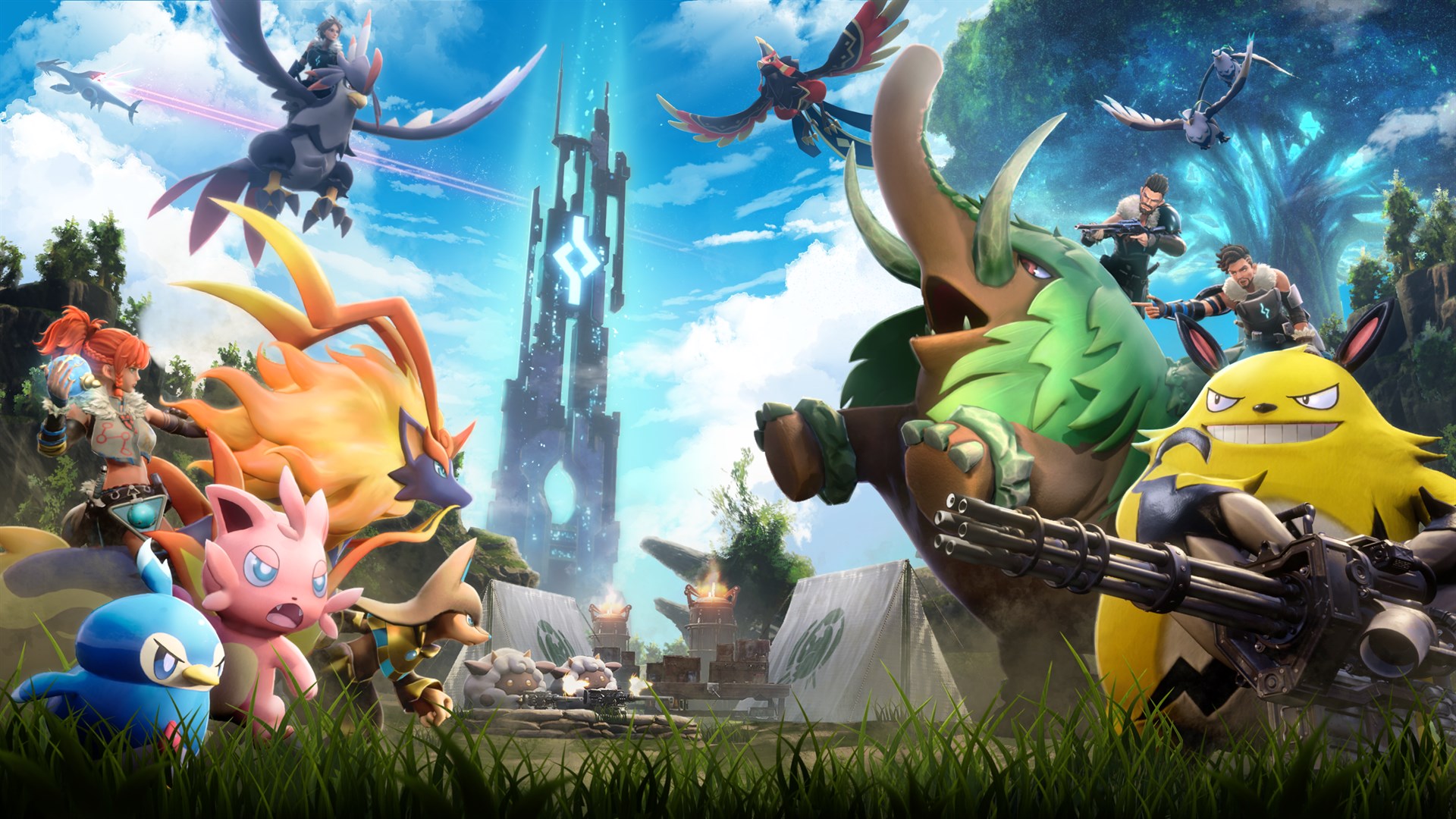Palworld and Pokémon: The IP Controversy and Lawsuit That Wasn't
Last Updated: October 22, 2025

The launch of Pocketpair's Palworld in January 2024 was an industry-shaking event, not just for its staggering sales figures but for the immediate and intense controversy it ignited. Dubbed "Pokémon with guns" by the internet, the game's blend of monster-collecting, survival, and crafting mechanics drew immediate and widespread comparisons to Nintendo's and The Pokémon Company's iconic franchise. As social media filled with side-by-side comparisons of Pal and Pokémon designs, the gaming community held its breath, waiting for the seemingly inevitable legal hammer to fall. Yet, months later, the landscape remains more nuanced than a simple courtroom showdown.
This is the definitive breakdown of the Palworld IP controversy, the official responses from the key players, and the complex legal realities that explain why a lawsuit has yet to materialize.
The Official Stance: Investigation, Not Litigation
In the wake of Palworld's explosive debut, The Pokémon Company released a carefully worded statement in late January 2024. Without naming Palworld directly, the company acknowledged the inquiries it had received regarding "another company’s game" and stated its position clearly: "We have not granted any permissions for the use of Pokémon intellectual property or assets in that game. We intend to investigate and take appropriate measures to address any acts that infringe on intellectual property rights related to the Pokémon."
Shortly after, Nintendo's president, Shuntaro Furukawa, echoed this sentiment, confirming the company would "take appropriate action against those that infringe our intellectual property." Despite these strong statements, no official lawsuit has been filed against Pocketpair for the content within the base game of Palworld. This calculated inaction speaks volumes about the complexity of intellectual property law in game development.
The Legal Tightrope: Style vs. Substance
The core of the issue lies in the difficult legal distinction between infringing on a copyright and being inspired by a style. For Nintendo and The Pokémon Company to have a successful copyright infringement case against the base game, they would need to prove that Pocketpair illegally copied specific, protected assets—such as 3D models, code, or animations. While online sleuths have pointed out striking similarities in creature proportions and design archetypes, proving direct theft of assets is a much higher and more difficult legal bar to clear than simply demonstrating a similar artistic style or genre.
Takuro Mizobe, the CEO of Pocketpair, has publicly stated that the company has "no intention of infringing on the intellectual property of other companies" and that Palworld has cleared all necessary legal reviews. The defense would likely argue that while Pokémon was an inspiration, Palworld's mechanics and designs are original creations that fall within the established tropes of the monster-taming genre, a genre Pokémon itself popularized but does not exclusively own.
A Clear Line in the Sand: The Pokémon Mod Takedown
While Nintendo has remained publicly silent on Palworld itself, its actions elsewhere have been swift and decisive, clearly defining its legal boundaries. Shortly after Palworld's launch, a modder showcased a work-in-progress modification that would replace the game's Pals with actual Pokémon models, featuring Ash Ketchum as the player character.
The response was immediate. Nintendo issued a takedown notice against the modder's content, and videos showcasing the mod were promptly removed from platforms like YouTube and X (formerly Twitter). This action draws a critical distinction: directly using Nintendo's copyrighted assets (the Pokémon models and characters) is a clear-cut case of infringement, and the company will aggressively defend against it. The base game of Palworld, which uses its own original assets, does not cross that same unambiguous line, making any potential legal challenge far more complex and uncertain.
The "Prior Art" Question and Fan Creations
In a hypothetical legal battle, one complex argument could revolve around the concept of "prior art"—evidence that a creation's core concepts were already publicly known. A defendant might argue that certain designs or ideas were already circulating in the public domain, perhaps through fan art or other games, thus challenging the novelty of the plaintiff's IP.
However, relying on fan-made content like mods as "prior art" is a perilous legal strategy. Mods are, by their very nature, derivative works built upon the framework and assets of an existing, copyrighted game. Courts generally do not view them as standalone, original creations that can establish a new public domain concept. Nintendo's takedown of the Pokémon mod reinforces this perspective: fan creations that use protected IP are seen as infringements, not as legitimate contributions to the pool of "prior art." This reality would significantly complicate any attempt by a defendant to use the vast world of fan content as a shield in an IP dispute.
The Future for Palworld Amidst Scrutiny
The initial storm of legal speculation has calmed, but the controversy has permanently marked Palworld's identity. Pocketpair continues to develop the game, releasing updates and a roadmap for its eventual exit from Early Access. The intense scrutiny has undoubtedly placed the developer under a microscope, ensuring that all future content will be meticulously examined for any potential IP conflicts.
Ultimately, the Palworld saga has become a fascinating real-world case study on the blurry lines between inspiration and infringement in the video game industry. While the "Pokémon with guns" label will likely stick, the absence of a lawsuit from one of the world's most protective IP holders suggests that similarity in style, without concrete proof of asset theft, may not be enough to win a legal war. For now, the battle rages on not in the courtroom, but in the court of public opinion, where players continue to debate the originality and legacy of one of the most controversial hits in gaming history.